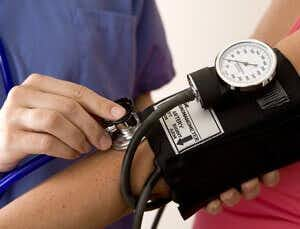
Q. I am a 73 year old retired RN who has been treated for high blood pressure since last August by an internist and a cardiologist. Every prescription they have written has had adverse side effects for me.
Within a week of starting the medication, I become very weak and occasionally very faint. I cannot function.
My blood pressure is neither lower nor higher. I have tried lisinopril, atenolol, Cozaar, Benicar, Norvasc, Procardia XL, Coreg, diltiazem, Altace and Aldactone. In addition I have been taking HCTZ 12.5 with each of the above. (I was not taking the others together.) Is it really worth taking medication that could make me lose consciousness? That frightens me.
A. Many older people have high blood pressure, and consequently their doctors prescribe medications to lower their pressure and reduce their risks of stroke or heart disease. That certainly is a desirable outcome. But we also hear from many people like yourself who find that the side effects of such medications can be upsetting.
It is not unusual for senior citizens to discover that a drug that can bring their blood pressure down can also make them dizzy or faint, especially upon first standing up from a sitting position or lying down. Because dizziness can lead to falls, and falls can have devastating consequences such as hip fractures or head injuries, we worry about aggressive treatment for hypertension in older patients.
A recent study found that older people who took anti-hypertensive medicines were more likely to have a serious fall over the course of three years (JAMA Internal Medicine, April, 2014). Those who had already experienced a fall were at double the risk.
The investigators who did the study told reporter Paula Span of The New York Times that older people should determine which is more important to them: avoiding cardiovascular risks or minimizing the risk of a fall. Then they should let their doctors know about this preference. We recommend that you discuss this issue with both your internist and your cardiologist. To help you prepare for the conversation, we offer our Guide to Blood Pressure Treatment with a discussion of the pros and cons of many types of medication as well as natural approaches to controlling blood pressure. Our Guide to Drugs and Older People may also be helpful.

